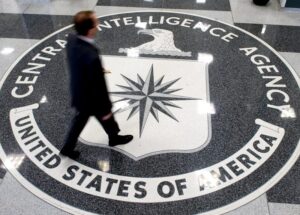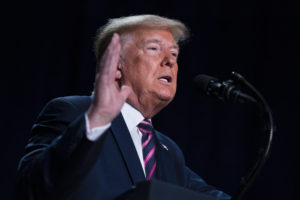Time to Tame the Monster
The CIA now admits that it spied on a Senate investigation into the agency's shameful program of secret detention and torture. Do we need any more proof that the spooks are out of control? Gil C / Shutterstock.com
Gil C / Shutterstock.com
The CIA now admits that it spied on a Senate investigation into the agency’s shameful program of secret detention and torture. Do we need any more proof that the spooks are out of control?
An internal “accountability board” will look into the incident, an agency statement said, and might recommend “potential disciplinary measures” or even “steps to address systemic issues.”
Somehow, I don’t feel reassured.
You will recall that when Senate Intelligence Committee Chairwoman Dianne Feinstein, D-Calif., alleged in March that the CIA was rummaging through her panel’s computer files without permission, CIA Director John Brennan scoffed at the complaint with high-handed derision. “I think a lot of people who are claiming that there has been this tremendous sort of spying and monitoring and hacking will be proved wrong,” he said.
Oops. An internal CIA probe discovered that, well, a good deal of spying and monitoring and hacking did take place. Brennan has reportedly apologized to Feinstein and Sen. Saxby Chambliss, R-Ga., the ranking Republican on the committee — both of whom have been among the CIA’s staunchest supporters on Capitol Hill.
The White House has taken a la-de-dah attitude toward the revelation that the agency charged with spying on the machinations of our foreign enemies instead trained its focus on the official work of our elected officials. Asked whether Brennan now has a credibility problem, press secretary Josh Earnest said, “Not at all.”
Earnest is wrong on that score, but the problem is much bigger than Brennan. At stake is the principle that our intelligence agencies — like our military forces — must be subject to civilian oversight and control. The spooks apparently have a different arrangement in mind.
After the 9/11 attacks, George W. Bush and Dick Cheney gave the intelligence agencies instructions and latitude that tested — and, in some cases, exceeded — legal, constitutional and moral strictures. For the National Security Agency, this led to a massive program of electronic surveillance that kept track of the private communications of millions of Americans. Obama took steps to limit the program only after it was publicly revealed by fugitive whistleblower Edward Snowden.
For the CIA, fighting the Bush-era “war on terror” involved holding terrorism suspects at secret overseas prisons in countries such as Poland and subjecting some of them to torture. Immediately after taking office in 2009, Obama put a permanent end to what the Bush administration euphemistically called “enhanced interrogation techniques.”
But Obama also decided against any kind of comprehensive investigation to determine exactly what happened. The prosecutor assigned by Attorney General Eric Holder to launch a limited criminal probe decided not to file charges.
The CIA, meanwhile, had been busy covering its tracks. In 2005, the agency destroyed videotapes of waterboarding sessions. Ostensibly, the reason was to prevent the tapes from somehow falling into the hands of al-Qaeda. In reality, the CIA was worried that its officers might be held accountable for their actions.
The Senate Intelligence Committee decided to conduct the investigation of CIA detention and torture that no one else wanted to touch. One question the committee set out to answer was whether the CIA’s claim that torture produced valuable intelligence was accurate.
From the beginning, the committee had difficulty wresting information from the agency. Secure computer networks were eventually set up so that documents could be vetted, redacted if necessary and then transferred to committee investigators. Earlier this year, Brennan complained to Feinstein that her investigators had improperly gained access to an internal CIA review that cast doubt on the torture program’s effectiveness. Feinstein responded that the document was properly obtained — and that the CIA could not know the committee had the document unless it had hacked into the Senate investigators’ computer network.
This is precisely what happened, the CIA now acknowledges. And there’s more: The CIA also hacked into the emails of some of the committee’s Democratic staff members.
Sen. Mark Udall, a member of the intelligence panel, stated the obvious: “This grave misconduct not only is illegal, but it violates the U.S. Constitution’s requirement of separation of powers.” He called on Brennan to resign.
As I said, however, this is bigger than Brennan. At issue is whether a vastly expanded and empowered U.S. intelligence establishment will be fully and properly brought under civilian control and oversight. Bush and Cheney created a monster. Obama, in the time he has left in office, had better tame it.
Eugene Robinson’s e-mail address is eugenerobinson(at)washpost.com.
© 2014, Washington Post Writers Group
Your support matters…Independent journalism is under threat and overshadowed by heavily funded mainstream media.
You can help level the playing field. Become a member.
Your tax-deductible contribution keeps us digging beneath the headlines to give you thought-provoking, investigative reporting and analysis that unearths what's really happening- without compromise.
Give today to support our courageous, independent journalists.






You need to be a supporter to comment.
There are currently no responses to this article.
Be the first to respond.